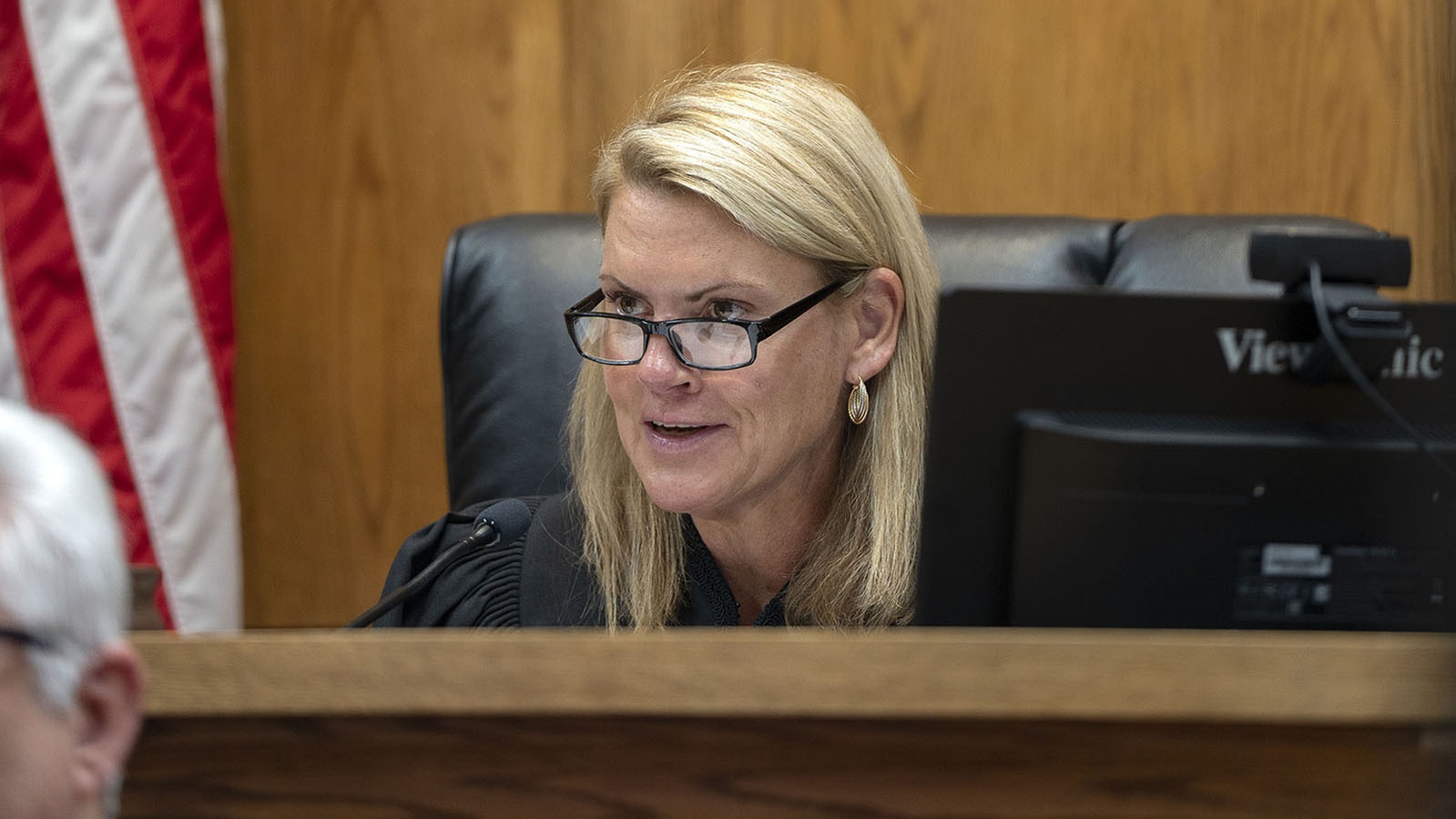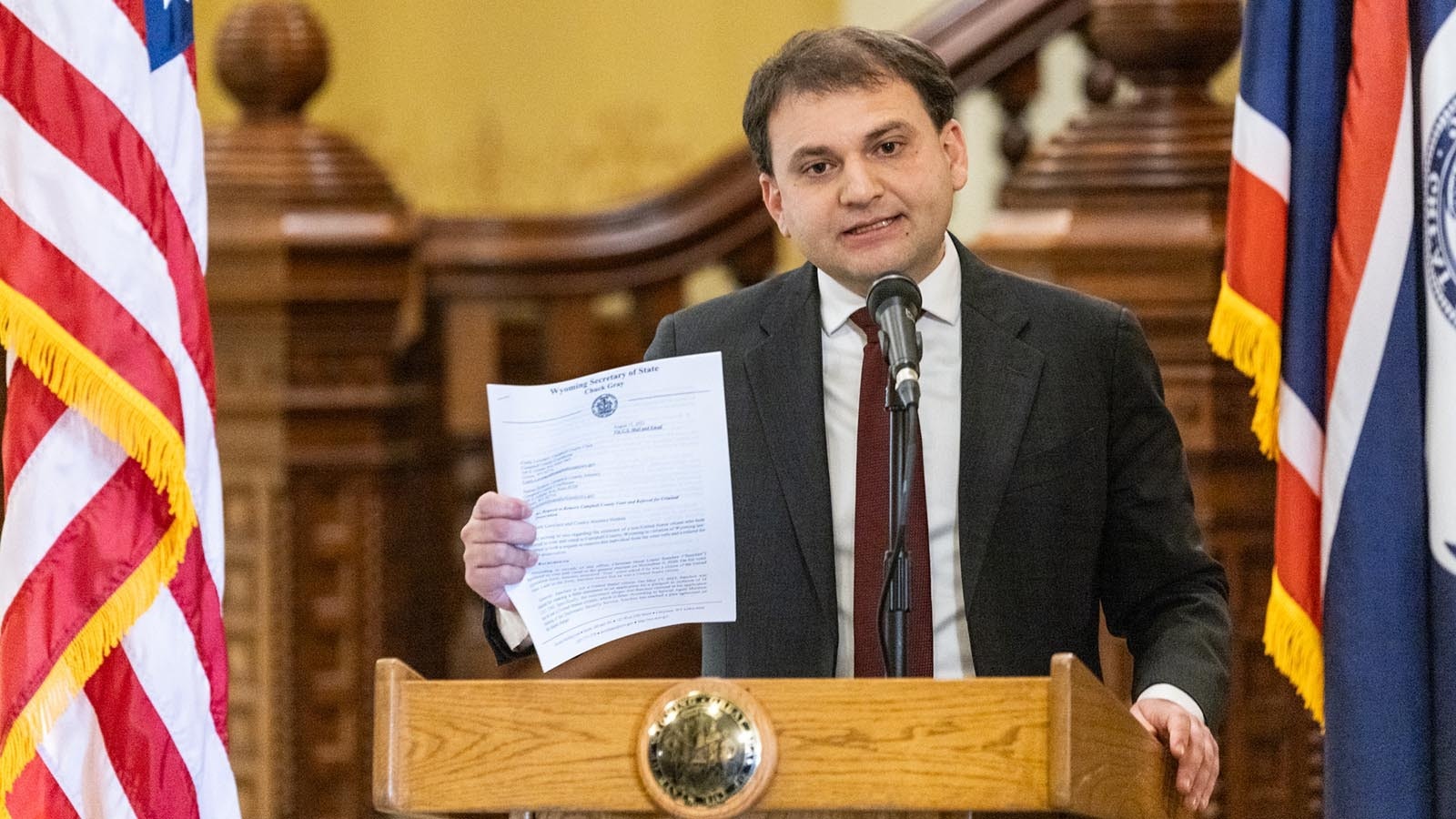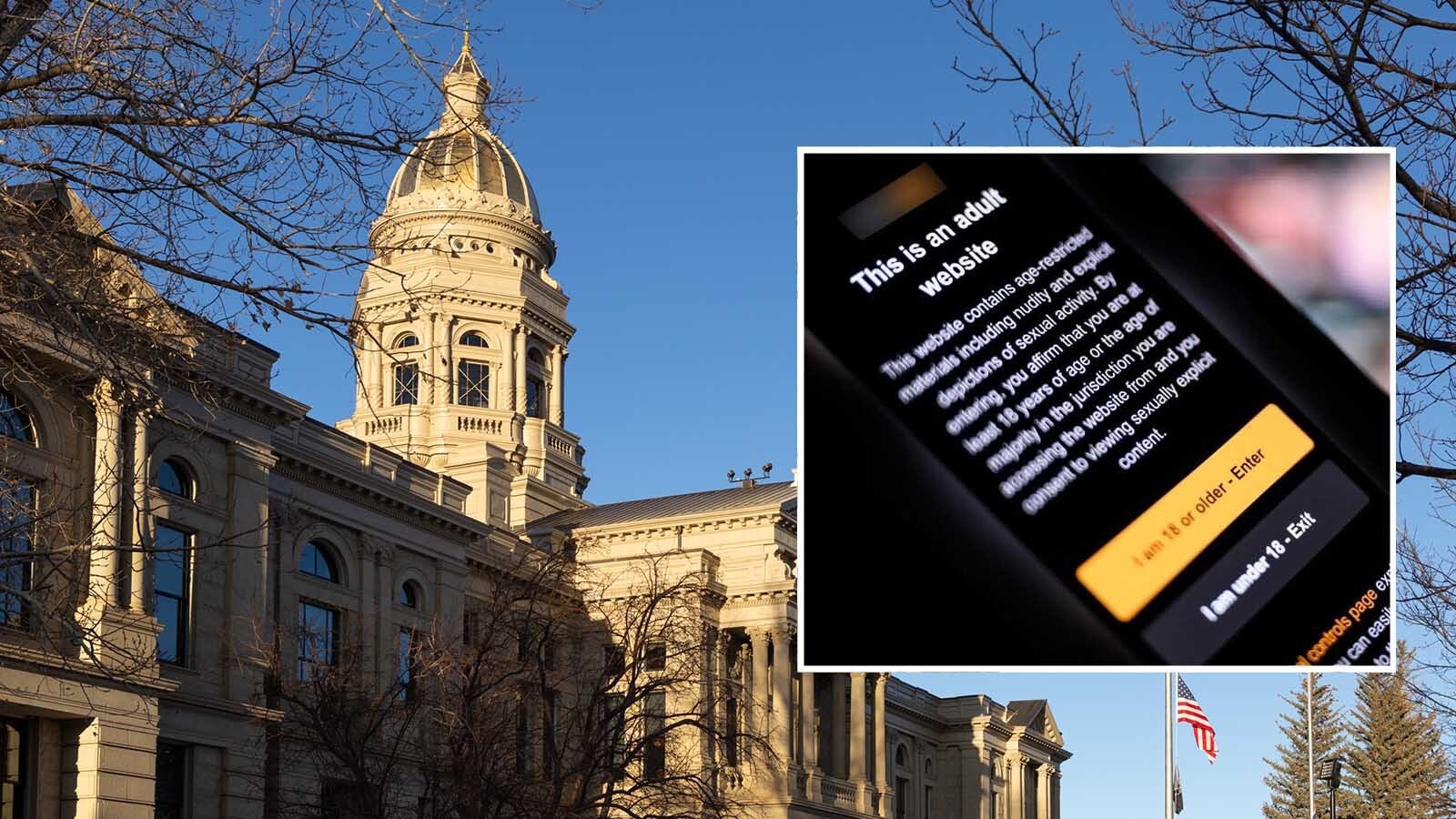Four Wyoming doctors this week asked a state district court judge to let them file an expert opinion in Wyoming’s abortion lawsuit, arguing that abortion is not health care.
Retired doctors Tim Hallinan and David Lind, and active obstetrician-gynecologists Drs. Samantha Michelena and Michael R. Nelson, this week filed a proposed amicus brief in an ongoing lawsuit against Wyoming’s abortion bans, Johnson v. Wyoming.
The doctors are hoping to Teton County District Court Judge Melissa Owens will consider their premise that abortion is not health care as the case plaintiffs are arguing, and that professional obstetrics standards take account of two or more patients, not just one, in caring for each pregnancy. They filed their proposed amicus brief through their Cheyenne-based attorney Thomas Szott.
“(We) adhere to the first principle of medical ethics in the Hippocratic tradition: ‘First, do no harm,’” reads the proposed brief.
Because, Irreparable Harm
Much of the proposed brief confronts the arguments in a September memorandum by the plaintiffs asking the court to judge the case in their favor.
The plaintiffs include two birthing-age women, an abortionist, another OB/GYN, a group that pays for women’s abortions and an abortion clinic.
The memorandum in support of their motion for summary judgment argues that Wyoming’s abortion bans – which are paused during the case against them – will cause irreparable harm to the plaintiffs and Wyomingites in general if Owens doesn’t block the laws permanently.
The memorandum characterizes pregnancy as dangerous in general, listing medical risks surrounding pregnancy.
“Labor complications occur at a rate of over 500 per 1,000 hospital stays,” says the memorandum.
A Growing Uterus
The four doctors offering their rebuttal cast this argument as a hyperbolic attempt to vilify pregnancy altogether, as a disease for which abortion is the cure.
“They include not only complications like pulmonary diseases and preeclampsia, and not only risks inherent in labor and delivery, but even garden-variety circumstances that occur in uncomplicated pregnancies,” reads the proposed brief, which then lists some of the plaintiffs’ health concerns: “Increased blood volume, a fast heart rate, increased production of clotting factors, breathing changes, digestive complications, substantial weight gain and a growing uterus.”
To paint pregnancy as a problem and abortion as a solution is to overlook medical realities, the brief argues.
The doctors allege that if the plaintiffs’ logic were followed through to its logical conclusion, then doctors would be subject to discipline for refusing to perform or aid abortions on demand.
Wyoming law contradicts that outcome, the brief continues.
Statute 35-6-130 promises that doctors won’t suffer civil liability or professional discipline for refusing to take part in abortion or euthanasia.
This Part Is Not For Doctors
The doctors acknowledge in their proposed briefs that many of the plaintiffs’ claims are outside their purview.
Among other arguments, the plaintiffs say the abortion bans could exacerbate domestic violence, mental suffering, economic downfall and disparities in wellbeing between different races.
“Wyomingites will suffer irreparable harm from forced pregnancy and parenting,” reads the memorandum, adding that 31.2% of Wyoming pregnancies are unintended. “Wyomingites will be forced to remain pregnant against their will.”
The memorandum lists numerous concerns from the plaintiffs, including that pregnant women endure more domestic abuse than non-pregnant women, and that a woman would not be able to have an abortion “to protect herself from this trauma and violence.”
The abortion ban also doesn’t allow for abortions in response to all fetal anomalies that could become fatal, the plaintiffs’ memorandum says.
The document argues that this jeopardizes the mother’s quality of life and the quality of life a newborn baby may have as it grows.
“Pregnancy often presents medical complications that threaten the mother’s — and fetus’ — long-term well-being,” it reads.
In the plaintiffs' lawsuit complaint, they consistently call abortion "evidence-based health care," hearkening to their argument that abortion is health care under the Wyoming Constitution, which promises health-care autonomy to people.
Carveouts Too Vague?
The brief goes on to list some of the carveouts under which Wyoming’s primary abortion ban, the Life Is a Human Right Act, would allow for abortions if Owens were to allow its enforcement.
Ectopic pregnancies, cancer and molar pregnancies are just a few of these.
The doctors say the carveouts look clear enough for them to do their jobs — a pushback on the plaintiffs’ claim the law is too vague to be constitutional.
They cite other portions of the law in support of this claim, such as its allowance for doctors to exercise their reasonable medical judgement, and its provision letting doctors perform an abortion not only to prevent a woman’s death in the moment, but also “to prevent a substantial risk of death for the pregnant woman.”
The plaintiffs, conversely, are arguing that the carveouts contain confusing terminology and place doctors at risk of avoiding immediate and necessary care for fear of having to face criminal charges.
Twelve Times More Dying
The risk of a mother dying from pregnancy is more than 12 times that of dying from a legal, pre-viability abortion, according to data the plaintiffs presented in their memorandum.
The doctors question this statistic as a false comparison, pointing to mismatches between the data sets.
The doctors’ brief then diverts from the data to call the act of comparison irrational. “Whatever their relative risks for a pregnant mother, the overall risk of death — mother or child — is thousands of times higher in abortion cases than live-birthing cases,” reads the proposed brief.
Those Exemptions
The back-and-forth about whether Wyoming’s abortion bans protect life is not new to this case.
The plaintiffs are using the rape and incest exemptions within the bans to argue that Wyoming has departed from its professed interest of protecting life – and therefore can’t defend its own bans.
The doctors’ brief doesn’t unpack that argument.
Clair McFarland can be reached at clair@cowboystatedaily.com.





